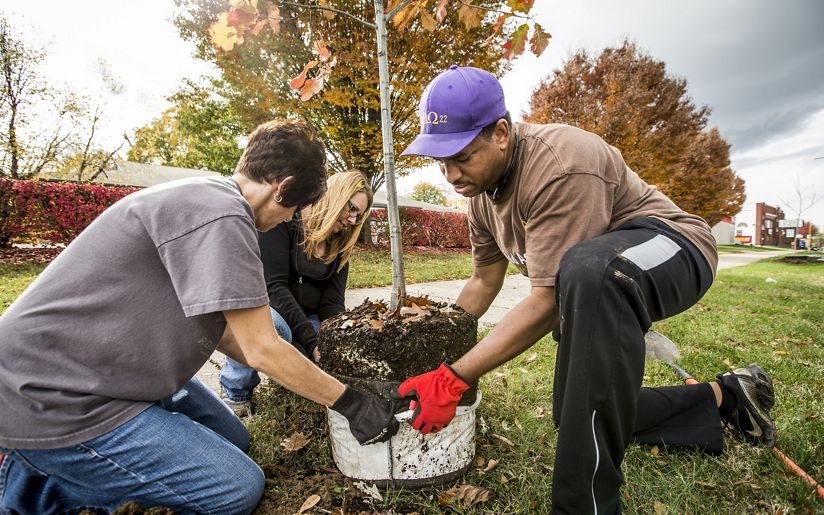- About
- Topics
- Picks
- Audio
- Story
- In-Depth
- Opinion
- News
- Donate
-
Signup for our newsletterOur Editors' Best Picks.Send
Read, Debate: Engage.
| March 16, 2016 | |
|---|---|
| topic: | Good Governance |
| tags: | #Rwanda, #environment, #climate change, #climate action, #green development |
| located: | Rwanda |
| by: | Bob Koigi |
But Rwanda seems to have taken the lessons of the genocide seriously. As it seeks to heal and reconcile, it has also invested heavily in having the right systems and processes to steer the economic and social development of its people.
It has however not been a mean feat getting to its current enviable position. It is a calling that has enveloped the government, private sector and every citizen in turning Rwanda from just a post genocide nation to the Singapore of Africa as it is commonly christened.
Rwanda’s judicious implementation of various projects geared towards growth is inspired by the economic blue print Vision 2020, which seeks to position the country as environmentally sustainable middle income nation.
For starters, while the rest of the world decided to introduce tax on plastic bags which are considered an environmental hazard, the land of a thousand hills, as Rwanda is fondly referred owning to its hilly landscape, decided to introduce a total ban in 2008. At the country’s entry points, especially the airports, no passenger is allowed to the country with a plastic bag with sign posts warning visitors that their plastic bags would be confiscated. The penalties are harsh. If found with a plastic bag one is charged $150 with store owners who stock them facing up to 12 months in prison.
Then there is Umuganda, which loosely translate to, coming together to achieve a common purpose, an obligatory collective street clean up that happens every last Saturday of the month. The exercise involves all able bodied citizens between 18 and 65 years and includes cleaning of streets, clearing of bushes and sewage systems. The Rwandese takes the day so seriously that even President Paul Kagame participates in the cleanup.
To decongest the capital city, the government has introduced a car free policy. Under the arrangement, minibuses and cars are banned from the city center. Residents rely on bus transportation for daily commute. The idea is to create a pedestrian friendly city. The impact has been conspicuous. The capital Kigali is pristine, with well-manicured lawns giving the country that was once shattered by genocide, a sense of vitality. It is such a sight to behold that newlyweds use the gardens at the heart of the city for photo shoots.
Such efforts have caught the eyes of the world. The United Nation Habitat awarded the country with the prestigious UN Habitat Scroll of Honour Award in 2008 for its efforts in promoting an environmental friendly city even as it industrializes. “From 1998, the authorities in Kigali began restoring the city’s lost glory. They targeted garbage collection, and banned the use of plastic bags. The streets and pavements were beautified, and public transport was upgraded. Other areas included improvement of the sewerage system and slum upgrading. In just one decade, Kigali has been transformed into a place to which people come from all corners of the world to see and learn how they can replicate the Kigali modernisation and urban conservation model at home,” read part of the citation of the award.
The country was last year ranked in the top three of the world’s greenest places for 2015 after Costa Rica and Ecuador by World Travel Guide, an international travel guide for adventurous travelers.
“Rwanda has been a frontrunner in keeping the country neat, and environmentally clean. And while part of it might come from the culture of embracing hard work, self-discipline, and orderliness that were planted in the populace by the Belgians who colonized them, a lot of it has got to do with political will and the population working with the government closely. President Kagame has owned this projects, not delegating but actually being involved. From chairing meetings at the ministerial level to getting his hands dirty to clean the city,” said Professor Abraham Lukoko a policy and governance analyst at National University of Rwanda.
Such hands on experience by President Kagame has also seen him reign on corruption, with the country receiving a clean bill of health in good governance even as the rest of African countries battle with endemic corruption that has brought economies to their knees.
Last year, the World Economic Forum (WEF) placed Rwanda as the most efficiently governed country in Africa and seventh globally.
By copying the embed code below, you agree to adhere to our republishing guidelines.
